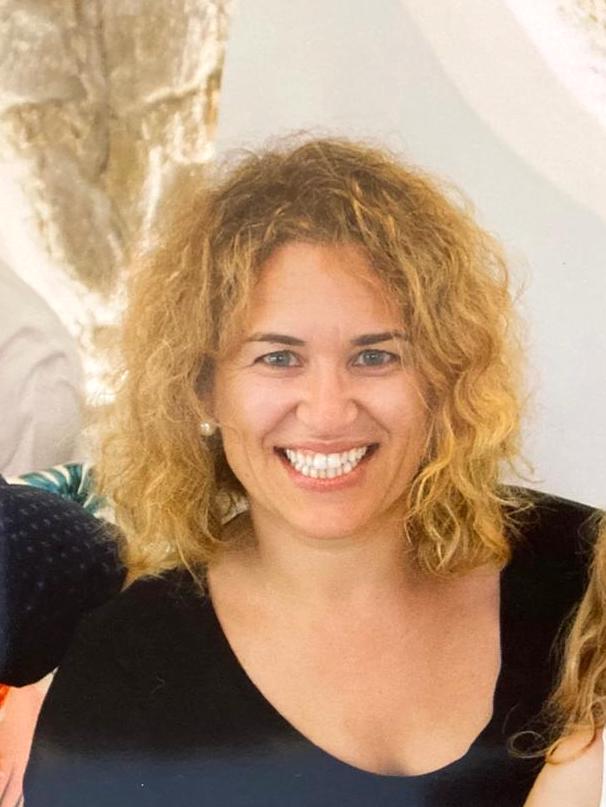
Let’s ALL Get Moving! – an Interview With Sport and Inclusion Expert Maria Campos
In the series “33 questions” we introduce, in no particular order, our WiRe Fellows who are currently working on a research project here at the University of Münster. Why 33? Well, if we think of the rush hour of life, it is kind of the age that lies in the middle. And we also like the number😉.
In today’s episode we are speaking with Maria Campos, Professor and researcher at the University of Coimbra and passionate lover of travelling.
1. What motivated you to work in the field of inclusion for people with disabilities?
Since a young age, I had the opportunity to interact with people with disabilities, and naturally, I developed an interest that turned into a personal and an academic passion. As I delved into the literature on the subject, I became increasingly aware of the need to research and intervene in this area, aiming to create the best possible conditions in the fields of sport and physical education for individuals with different abilities. The potentials of physical activity are too valuable not to be accessible to everyone. Despite international demands emphasizing the importance of inclusion in various spheres, unfortunately, this is still not a reality.
2. Describe your work in three words.
Teaching – reading – reviewing (& repeat)!
3. Describe your research topic in three words.
Sport – Inclusion – Disability
4. What does a typical (work) day look like for you?
Starts with a home-made café latte and email checking. For sure involves teaching classes, advising master’s and doctoral students, reading, writing & reviewing articles. Usually, I also have online meetings with colleagues on international projects.
5. What direct or indirect relevance does your research have for society?
Like any researcher, we consider our research to be of utmost relevance. In fact, I believe that any research aimed at improving the quality of life for people is commendable. In my particular case, considering the Sustainable Development Goals (SDGs), reducing inequalities and empowering people with disabilities must be a priority. My humble contribution aims to eliminate some of remaining barriers to inclusion and to develop facilitators through the training of Physical Education teachers and other sports professionals. The relevance of sports is well recognized, and it is a catalyzing tool for inclusion, as I stated on the PhD dissertation “On the way to inclusion : how powerful is physical education (PE)?”
The train is moving slowly to achieve social inclusion. It is important to acknowledge that it is taking too long to arrive to the destination, because of the considerable number of structural constraints. I believe that PE and sport can act as a compound to achieve social inclusion. Using a metaphor of a train, we need to go faster and there are different levels of concretization: at PE/ sport class level (wagon), the teacher/ coach can use peer tutoring as a hands-on strategy. Implementing awareness programs is also a good strategy to foster positive attitudes among professional and peers without disabilities. At the school/club level (wheels), administrators could also include another professional in classes with participants with disabilities. Offering specific training in inclusive and adapted physical activity is also a crucial strategy, and for that matter universities and the ministry of education must promote workshops in this topic. At national level (railways) PE curricula and PE school books must include information about the Paralympic movement and adapted sports. For instance, in PE school manual for every sport it ought to have the adapted sport as well as pictures of students with different abilities to promote a diverse representation.
This metaphor emphasizes the importance of collective efforts across various levels to propel the train of inclusion forward. While in an ideal scenario all these strategies should be in place, in the real world the different stakeholders should embrace the strategies they feel are within their reach. In light of this, I see my mission as accelerating this progress by promoting positive attitudes and behaviors on prospective PE teachers and coaches and researching on ways to foster inclusion community-wide.
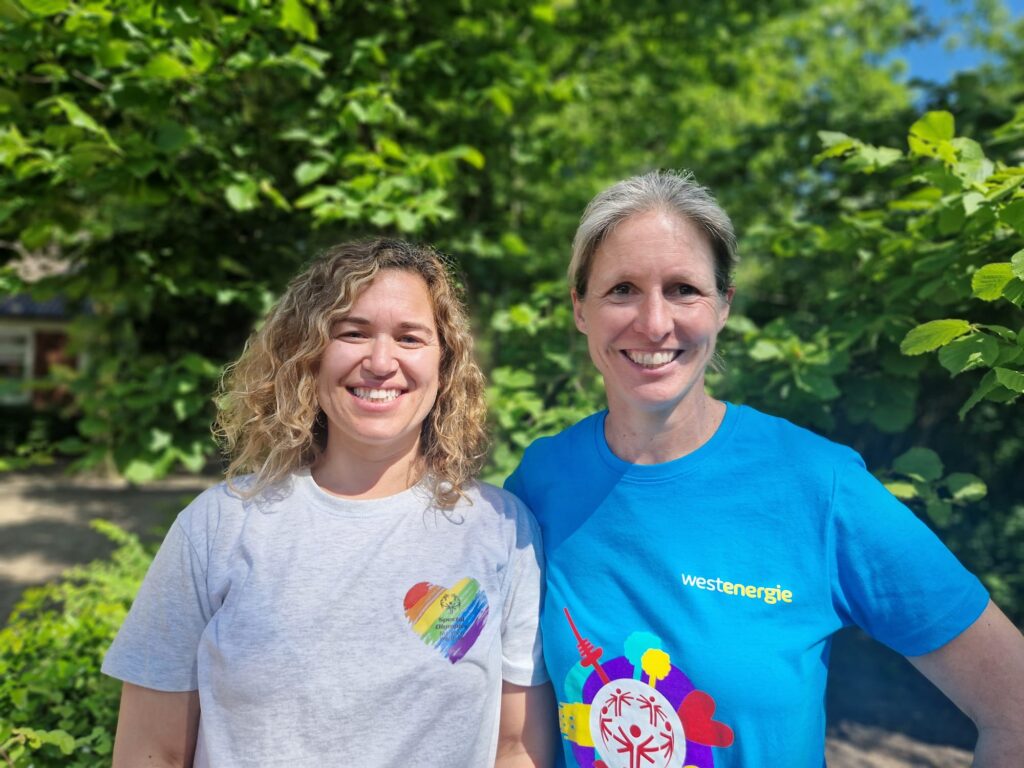
5. A good researcher working with people with disabilities needs…?
To have empathy and sensitivity to understand the perspectives of others.
6. What was the funniest moment you had in science?
I am fortunate to live incredibly enriching and heartwarming moments in my academic and professional life. During interviews with participants with Down Syndrome, a child approached me with increasing warmth. Engaged in continuous conversation, as he drew nearer, he made a sweet attempt to give me a kiss and then expressed his desire to be my boyfriend. After the interview, we hugged, and once again, he whispered, “I want to be your boyfriend!”
7. What do you like most about the “lifestyle” of a scientist / researcher? And what least of it?
I enjoy the learning process and the continuous appreciation that there is so much to discover, but equally, what I like the least is knowing that there is so much to discover! On one hand, it’s a challenge to realize that we can advance in science and improve conditions for everyone. However, it’s simultaneously disheartening to know that there is still so much to be done… We could already be in a phase where social inequalities are much smaller, and equality and quality of opportunities were a given to all.
8. What is the best experience you have had as a scientist / researcher?
In the context of my PhD studies, I had the opportunity to go to the USA to learn from the best or one of the best in my field. For three months, I was inspired by the knowledge and humbleness of Professor Martin Block, who allowed me to experience different perspectives and acquire insights that further strengthened my desire to conduct research in the field of inclusion through physical education.
9. How did you survive your PhD time? What advice and tips do you have for future PhD students?
I survived with a lot of sports, travelling and seaside visits with friends! To students, I would say: persist in your dreams and aim for the stars. Read extensively, be bold, and reach out to the best in your field, even if you think it might be impossible for that person to reply to a mere PhD student.
10. What keeps you motivated in your work day in and day out?
The desire to do more and better for my students and for the community. As a researcher, it involves implementing programs of inclusive physical activity and demystifying participants’ concerns about interacting with people with disabilities.
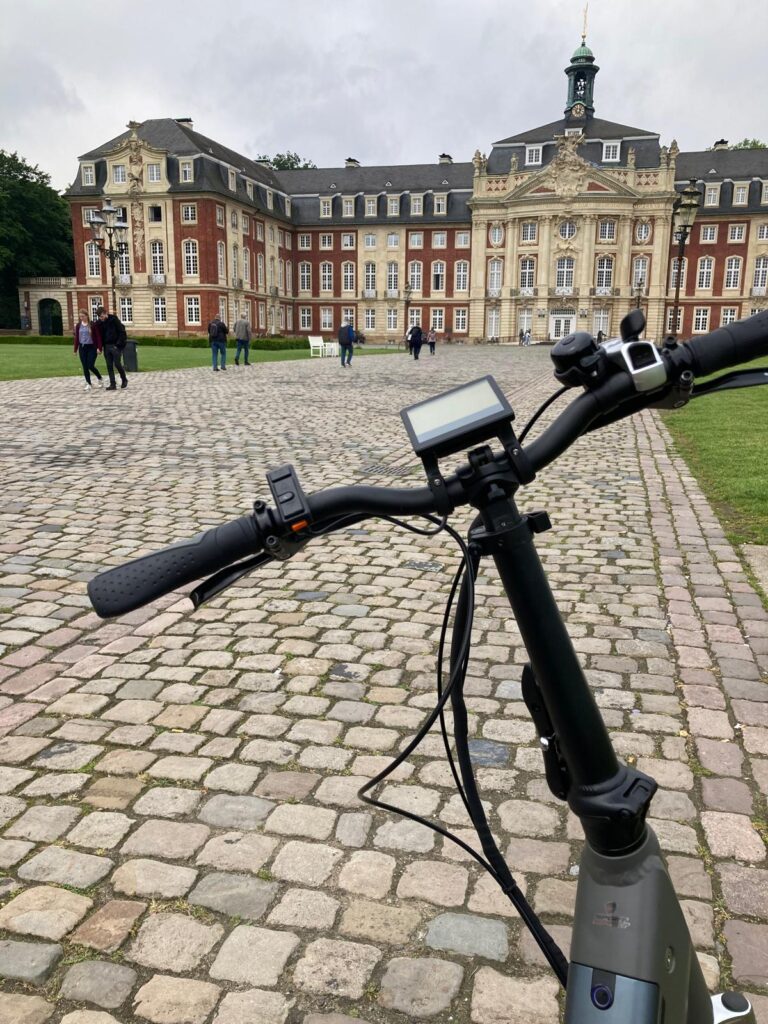
11. What was your biggest research disaster? What did you learn out of it?
My most significant research disaster occurred during the completion of my master’s thesis on “Perceived Competence and Social Acceptance in children with Down Syndrome”, back in time, before the existence of ICloud. On the eve of my final oral examination, my computer crashed, causing a momentary heart-stopping panic! This experience taught me a crucial lesson about the importance of creating multiple backups to safeguard against unpredicted technical bugs.
12. Which (historical) important scientist / researcher would you like to have dinner with? What would you ask?
What would I begin to ask? I can’t choose just one person or question. In general, pioneering women scientists who have made history and served as inspiration for future generations. It is admirable that in a world where women couldn’t even pursue higher education, and were relegated to lesser jobs, or were overshadowed by their husbands and colleagues, they challenged stereotypes and paved the way for all women.
That’s why it remains important to give more visibility to women scientists and promote gender equality policies and programs dedicated to women in science, such as WiRe. It’s a way to pay tribute to all the women who were ostracized and to those who managed to pursue their dreams. My questions would surely revolve around: How were you so brave? Where did you find the strength? Tell me about your challenges and where you drew the determination to overcome them.
13. What do you consider the greatest achievement in the history of science?
The Salamanca Statement and Framework for Action on Special Needs Education (UNESCO, 1994) marked a milestone in promoting the social inclusion of people with disabilities. It envisioned fundamental policy shifts towards inclusive education, aligning with the primary goal of Education for All.
14. What is your favorite research discipline other than your own?
Definitely Zoology! When I was a kid, I wanted to be a lion whisperer!
15. If time and money were no object: Which research project would you like to do?
I would like to finance sport clubs, fostering social inclusion and enabling greater participation within the community. I’m currently involved in one European project where we are developing a model of criteria for funding social inclusion in sport across several European countries, and it would be of utmost relevance to test those criteria. How relevant would it be for the community to have the opportunity to play sport and physical activities in inclusive settings according to their needs and interests?

16. In terms of work-life balance: How do you keep your head clear when you are stressed?
Exercising with friends, playing with my daughter & travelling with my family.
17. What makes you most happy about the world?
Life in general, and the magnitude and beauty of nature in particular.
18. Which hobby have you given up for a life in academia?
So many… but having stopped playing rugby was the most impactful.
19. What is your favorite place to relax from research?
Here, also so many… any place in our motorhome! Or simply by the seaside.
20. What do you like most about the “lifestyle” of a scientist / researcher? And what least of it?
I enjoy the learning process and the continuous appreciation that there is so much to discover, but equally, what I like the least is knowing that there is so much to discover! On one hand, it’s a challenge to realize that we can advance in science and improve conditions for everyone. However, it’s simultaneously disheartening to know that there is still so much to be done… We could already be in a phase where social inequalities are much smaller, and equality and quality of opportunities were a given to all.
21. What is the biggest challenge for you when it comes to balancing family and career? How do you master this challenge?
For me the biggest challenge is keeping the balance in check. A career has always been a priority for me, and until the age of 40, I never thought about having children. I decided to become a mother later in life and want to make the most of motherhood and my daughter’s childhood. However, there are times when maintaining that balance is indeed challenging.
22. How do you master this / these challenge(s)?
Whenever possible, to maintain my my mental health and work-life balance, I bring my family along when I travel abroad for teaching missions and conferences. The family ‘sacrifices’ vacations according to my schedule, classes, and conferences abroad. These end up being the moments when I can combine work with ‘vacation’ with the family, which otherwise wouldn’t be possible for all three of us to be together.
23. How often do you as a friend / partner / mother / daughter feel guilty when you have to meet a deadline – again?
Quite often, in fact, more often than I would like. As a university professor, we play various roles beyond teaching, and I am also involved in several European projects that demand a lot of commitments. Although my family is very understanding, as both a partner and a mother, there are moments when I feel remorse for the time I spend on the computer, unable to fully engage with them.
24. How would you explain your research area and topic to a child?
There are kids who, just like you, love to play and do sports with friends, but they can’t do it the same way as you. So, we need to learn and to understand how games can be played by all kids. As you know, when you’re playing with your friends, everyone might have different abilities. Well, my research is like trying to make sure that everyone, no matter what, can have fun and play together happily.
Since I’m very curious, I’m always looking for ways to ensure that games and activities at school or in sport clubs are enjoyable for everyone, including those who might need a little help to join in the games, because they could walk in a different way, use a wheelchair, or cannot see the same way as you -, but of course, all love to play. Imagine it’s like creating a place where everyone feels safe, included, and we all get to play and have fun together.
I also talk to teachers and grown-ups to find out how they can ensure everyone is part of the fun and that no one is left behind. So, in a way, my research is about making sure that every friend, no matter their abilities, can join in and have a great time playing and learning together… Because all children need to play, right?
25. What or who inspired you to become a researcher?
Since I was a child, I’ve been very curious. Subconsciously, I was inspired by my perception of life, particularly regarding human diversity. When I become a university student, I realized that I wanted to learn much more, about the field of inclusion and disability. In the University, the person who inspired me the most was my professor, who later became my PhD advisor.

26. Which experience in the world of science disappointed you most?
Any action that has been geared towards wars and causing harm to others.
27. How did you imagine the life of a scientist / researcher when you were a high school student?
I pictured a range of instruments in a laboratory, where scientists in white coats (and clearly disheveled and with a really bad hair day) and somewhat eccentric, never slept and were always bustling, intrigued, trying to discover something that would change the world!
28. Is it actually different? In what way?
Now knowing myself as a researcher, honestly, it’s not that different, especially since I have (99% of the time) messy hair and, naively/genuinely, I want to change the world! However, I do acknowledge that it’s actually different from the idea I had when I was young. Doing science is about getting closer to the world, to people, and to their own problems and concerns, rather than the notion that scientists were shut away in a lab, detached from reality.
29. Where do you see yourself in 10 years?
In my motorhome travelling around the world (in my dreams)! Realistically, I envision immense happiness with my family and a thriving career, dedicated to teaching and to ongoing research in this field, advocating for inclusion wherever I go and sharing my passion.
30. Which of your traits bothers you the most in your daily work? And which of your traits help you the most in your daily work?
I can only pick one? The inability to switch off, I’m always thinking about something. What I do find helpful is my tendancy to trust my instincts and be quite optimistic.
31. What are the advantages and disadvantages of doing a remote-WiRe-fellowship?
I can maintain my job and family close to me but for sure I would rather be in Münster to absorb all the atmosphere around the university and the city with my family for the duration of the whole fellowship.
32. If you were the research minister of Germany, what would you do to improve the situation of women in science?
Although I’m not familiar with the current situation, I would say extending paid maternity leave period, offering the possibility of remote work, and providing flexible schedules.
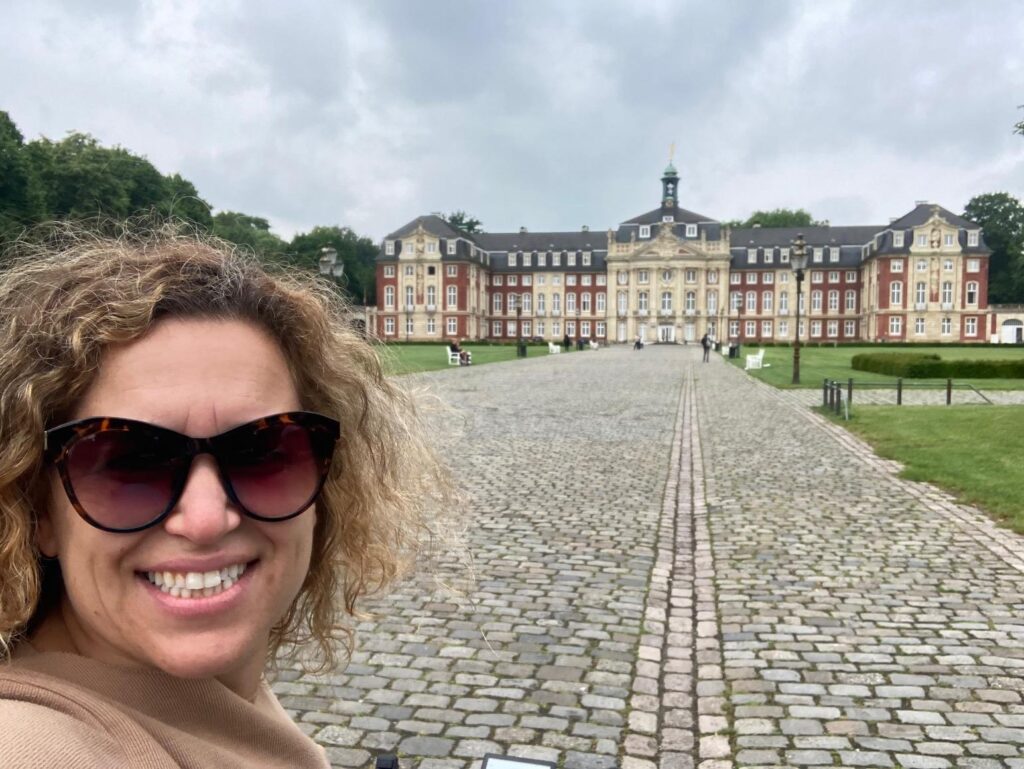
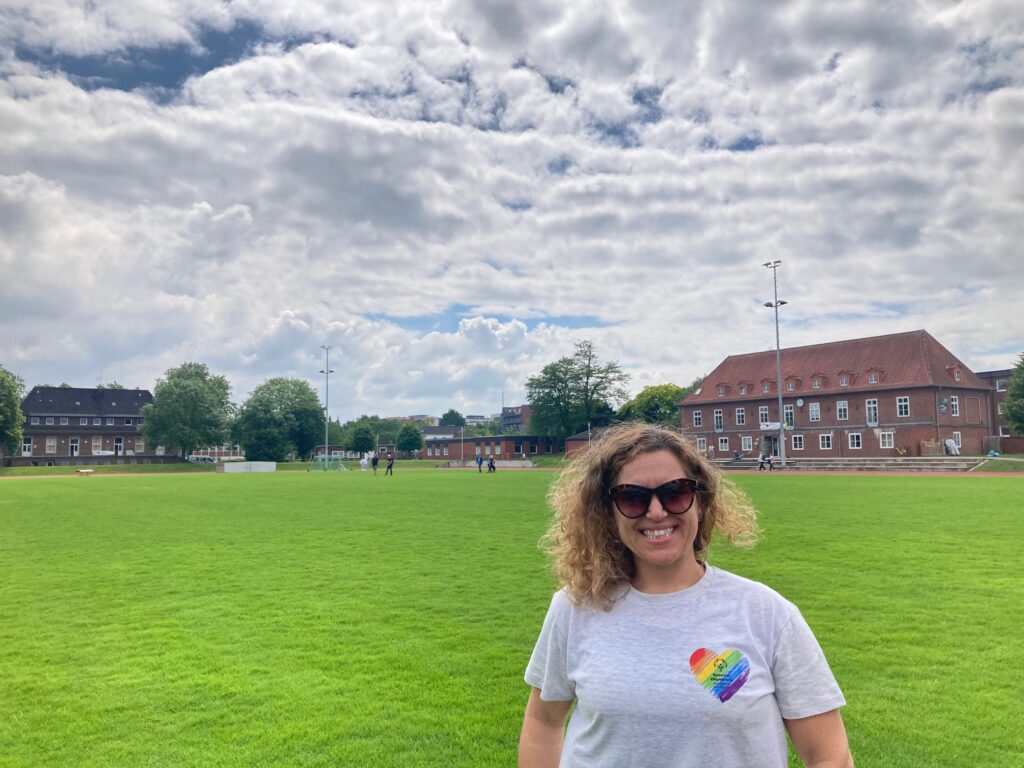
33. And last but not least: What would you advise your daughter to do in her own career someday?
Please don’t follow your mother’s path – “Enjoy the journey and create your own path, Maria Clara, don’t be afraid and believe in yourself!”
